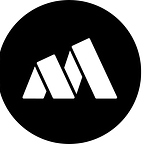The More You Know, The Less You Fear
Gina Hortatsos, CMO of LogicGate, discusses how the company’s fundamentally different view of risk is helping companies find strategic advantages.
There is a certain level of risk associated with every aspect of life. Some things are riskier than others. Jumping out of a plane puts you in more danger than making yourself some toast in the morning — unless in the unlikely event that you happen to live with a homicidal toaster, right? You can look up all the information on your own about how many people die in skydiving accidents every year versus how many die making toast. But you don’t have to — we’ll give you the answer to that question later on, but, ultimately, what will that information tell you and how will knowing the answer change your behavior?
LogicGate is a company that looks at risk fundamentally different from most others. According to Gina Hortatsos, the CMO of LogicGate, risk management is not fear-driven — in fact LogicGate considers risk as a strategic advantage. How does LogicGate turn risk on its head in a way that makes it something that its customers not only feel comfortable with but actually leverage to do great things?
Hortatsos uses the example of Canadian astronaut Chris Hadfield who was asked how he deals with the uncertainty and risk of being sent into space.
“He depended on a whole team of professionals who understood at every level of abstraction across the entire journey there and back what the risks were and understood how to mitigate, understood how to prevent, understood when to accept certain risks, so that when he was shot up into space,” Hortatsos said. “He felt confident that the risk reward quotient was something that he was comfortable with, the more, you know, the less you fear.”
And this is the lens that Hortatsos wants LogicGate customers to use when looking at risk in their businesses. She said modern, fast-paced, nimble technology should be deployed to solve kitchen table problems.
“Partnering with a vendor that actually understands that risk can and should be used to strategic advantage and should be looked at as an opportunity to take better, smarter, more profitable risks is, I think, what made that customer choose us,” said Hortatsos. “By being able to capture all your risks in one place, having a nimble platform that allows you to manage any risks, any process regarding whatever type of risk that’s getting thrown at you. You can then use, truly use risk as opportunity because you’re not missing anything. “
LogicGate takes risk management from a policing function on the sidelines to an offering that can help the bottom line.
“The software offering that we built and provide to our customers in a way that allows companies to actually look at the risk management function as a revenue generator, not a cost center,” Hortatsos said. “You have these risk management people on staff and they’re playing whack-a-mole all day… But what if we could look at that function as if these risk managers are given the right tools and the right empowerment to do their jobs, the way that we’re thinking about it, it actually can make the company more money.”
Risk management is one of the industries that has had trouble finding its way to the 21st century and while boards care about the risk exposure of a company, it hasn’t always filtered down.
“This poor staffer had to print out a whole bunch of different reports from different systems, take them home and use her dining room table for four days every month manually with paper…then key them into the template and send it to her boss,” she recalled.
LogicGate knows there is a better tech savvy way and they provide the technology to help companies to take smarter risks.
“That’s why we exist to help companies take better, smarter, more strategic risks that drive more profitability, customer loyalty, whatever it is and we feel passionately that the only way to do that is by applying modern technology to solve a lot of these old problems,” Hortatsos said.
Remember the skydiving versus toast example from earlier on? Well, as it turns out, on average there are 19 fatalities per year in skydiving accidents and on the flip side 700 people worldwide are killed each year as a result of toaster fires and electrocutions. 700 versus 19? Why does anyone ever make toast?! Well, if you assess the risk only through one variable — deaths — it would greatly affect how you act. But you have to consider other factors to get the full picture of the risk involved. To find out how LogicGate helps companies to turn risk into a strategic advantage and tune into Business X factors.
—
Business X factors is produced by Mission.org and brought to you by Hyland.
For over a decade, Hyland has been named a Leader in the Gartner Magic Quadrant for Content Services Platforms, leading the way to help people get the information they need when and where they need it. More than half of 2019 Fortune 100 companies rely on Hyland to help them create more meaningful connections with the people they serve. When your focus is on the people you serve, Hyland stands behind you. Hyland is your X factor for better performance. Go to Hyland.com/insights to learn more.
